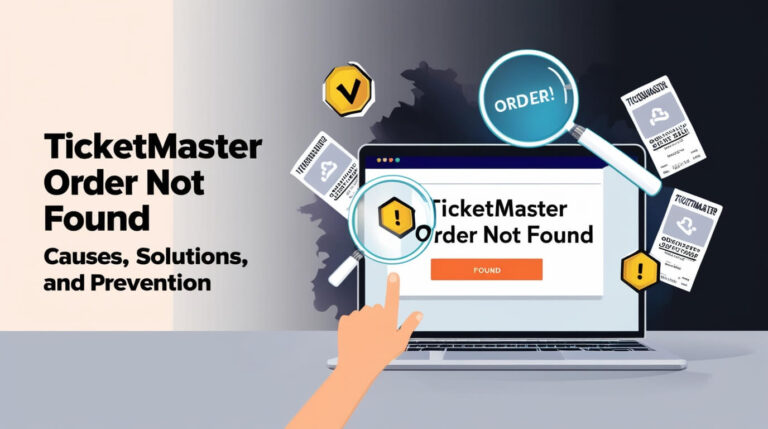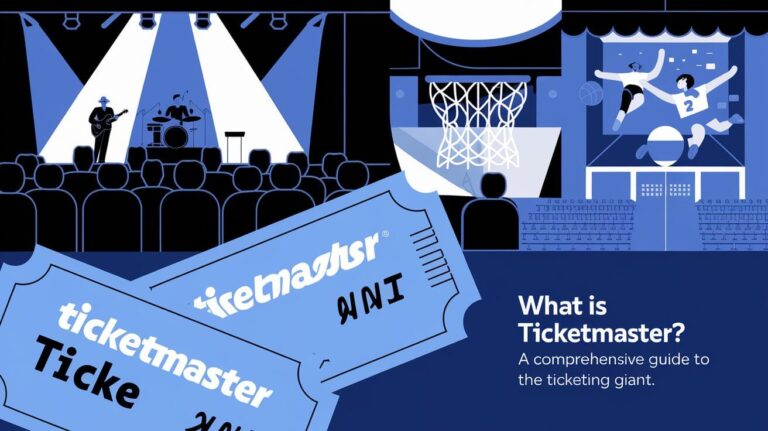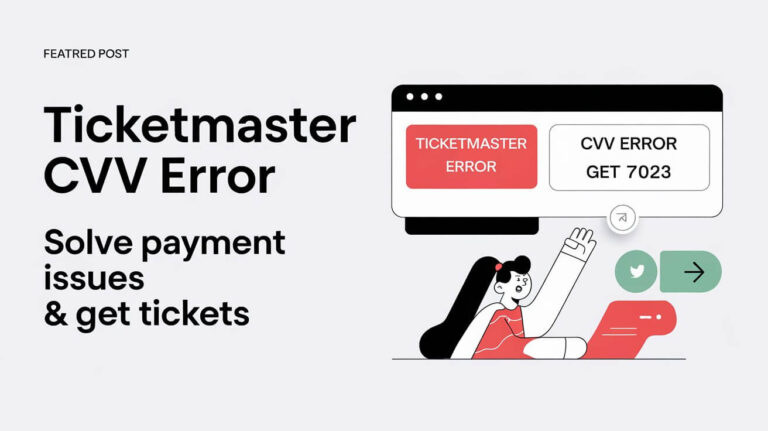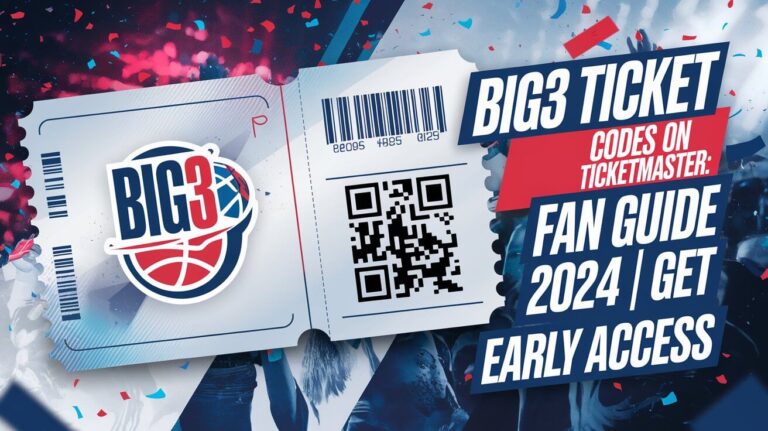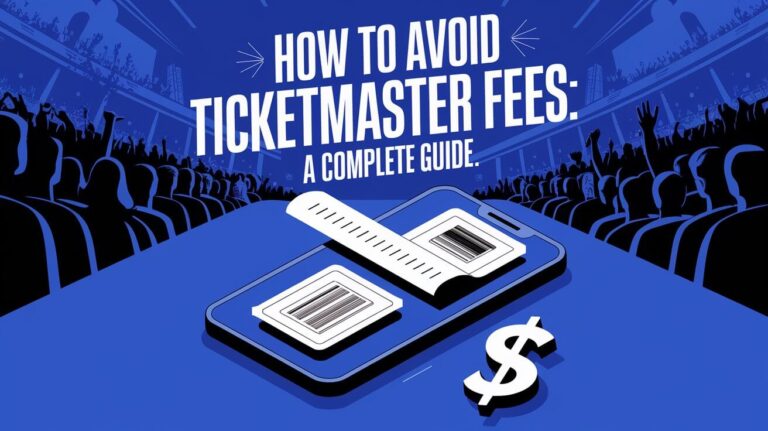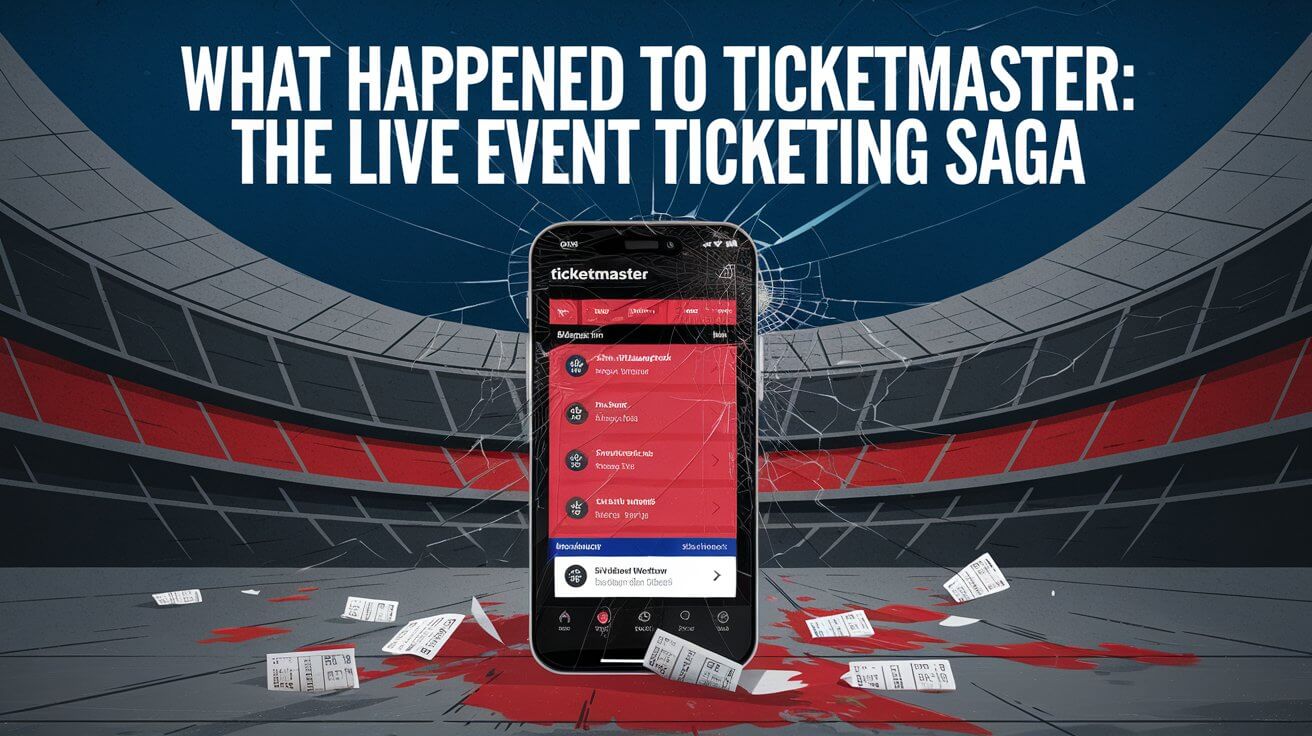
Ticketmaster’s grip on live entertainment has sparked outrage. Once a simple ticket seller, it now faces claims of monopoly power and excessive fees. Fans and artists alike question its dominance. This writeup examines Ticketmaster’s rise, recent woes, and impact on concertgoers.
The Rise of Ticketmaster
Early Days and Market Dominance
Ticketmaster wasn’t always a household name. It started small in 1976, selling tickets for local events. But it grew fast. By the 1990s, Ticketmaster was the go-to ticket seller for most big venues in the U.S.
How did they do it? Ticketmaster offered venues a sweet deal. They’d handle all the ticket sales and give venues a cut of the fees. This model worked well for both sides. Venues got extra cash, and Ticketmaster got exclusive contracts.
The Live Nation Merger
In 2010, something big happened. Ticketmaster joined forces with Live Nation, a giant concert promoter. This merger created Live Nation Entertainment, a powerhouse in live events.
The deal raised eyebrows. Some worried it would hurt competition. But the government okay’d it, with some rules to keep things fair.
Recent Controversies and Public Outcry
The Taylor Swift Eras Tour Debacle
Fast forward to 2022. Taylor Swift announced her Eras Tour, and fans went wild. But when tickets went on sale, chaos erupted.
Ticketmaster’s website crashed. Fans waited hours, only to leave empty-handed. Swift herself spoke out, saying she was “assured” Ticketmaster could handle the demand.
This wasn’t just a bad day for Swifties. It sparked a larger debate about Ticketmaster’s power in the industry.
High Fees and Service Charges
It’s not just crashes that bug fans. Ticket prices keep climbing, and fees are a big part of why.
Let’s break it down:
- Face value of the ticket
- Service charge
- Facility fee
- Processing fee
These extras can add 20% or more to the ticket price. Fans feel nickel-and-dimed, and they’re speaking up.
The Department of Justice Lawsuit
Allegations of Monopolistic Practices
In May 2024, the hammer dropped. The Department of Justice (DOJ) sued Live Nation Entertainment, Ticketmaster’s parent company.
What’s the beef? The DOJ says Live Nation-Ticketmaster:
- Has too much control over concert promotions and ticketing
- Bullies venues into exclusive contracts
- Blocks competition from other ticketing companies
- Limits artists’ venue choices unless they play ball
The government wants to break up the company. They argue this will lead to fairer prices and more choices for fans.
Live Nation’s Response
Live Nation isn’t taking this lying down. They say the DOJ’s got it all wrong.
Their arguments:
- Ticket prices are set by artists, not Ticketmaster
- Their market share has actually dropped since 2010
- Breaking up the company won’t lower ticket prices
- The real problem is scalpers and bots
Live Nation claims they’re being made a scapegoat for broader industry issues.
Impact on Consumers and the Industry
Ticket Prices and Availability
So, what does all this mean for you, the fan? Right now, not much has changed.
Ticket prices are still high. Popular shows still sell out fast. But if the DOJ wins its case, we might see changes down the road.
Pros of breaking up Live Nation-Ticketmaster:
- More competition could lead to better service
- New ticketing tech might emerge
- Venues might have more freedom to choose ticketing partners
Cons:
- Ticket prices might not drop (remember, artists set base prices)
- Smaller companies might struggle to match Ticketmaster’s tech and reach
Artist and Venue Relationships
This saga affects more than just fans. Artists and venues are caught in the middle.
For artists:
- Live Nation’s reach makes touring easier
- But some feel pressured to use Ticketmaster to access certain venues
For venues:
- Exclusive deals with Ticketmaster can be lucrative
- But they might miss out on innovations from other ticketing companies
Potential Outcomes and Future of Live Event Ticketing
Possible Breakup Scenarios
If the DOJ wins, what might happen?
- Full breakup: Ticketmaster and Live Nation could become separate companies again.
- Partial split: Live Nation might have to sell off some parts of its business.
- Behavioral remedies: The company stays whole but faces stricter rules.
Any change would take years to implement. Lawsuits like this move slowly.
Emerging Competitors and Technologies
While Ticketmaster dominates now, others are trying to shake things up.
New players like SeatGeek and AXS are gaining ground. They’re pushing for more transparent pricing and user-friendly interfaces.
Blockchain tech is another wild card. Some think it could make ticket sales more secure and cut down on scalping.
The Bigger Picture: Live Entertainment Economics
Tour Costs and Artist Guarantees
To really get what’s happening with Ticketmaster, we need to look at the whole live music business.
Touring is expensive. Artists face rising costs for:
- Transportation
- Stage production
- Crew wages
- Marketing
To cover these costs, artists often get “guarantees” from promoters like Live Nation. This system can push ticket prices up.
Venue Exclusivity Deals
Remember those exclusive deals we mentioned? They’re a big deal in the industry.
Pros for venues:
- Steady income
- Access to big-name acts
Cons:
- Less flexibility
- Potential missed opportunities with other promoters or ticketing companies
These deals shape which artists play where and how tickets are sold.
Consumer Tips for Navigating the Current Ticketing Landscape
Alternative Ticketing Platforms
While Ticketmaster is big, it’s not the only game in town. Here are some other options:
- StubHub: Good for resale tickets
- SeatGeek: Known for its “Deal Score” feature
- Eventbrite: Popular for smaller venues and events
- AXS: Growing player in the arena and theater space
Always check the artist’s official website too. Sometimes they offer direct sales or fan club pre-sales.
Timing Strategies for Popular Events
Getting tickets to hot shows can feel like winning the lottery. Here are some tips:
- Join fan clubs: They often get first dibs on tickets.
- Use pre-sale codes: Follow artists on social media to catch these.
- Be ready when sales open: Have your payment info ready to go.
- Check multiple devices: Use your phone and computer to up your chances.
- Be flexible: Consider less popular show dates or seats.
final thoughts
The Ticketmaster story is far from over. The DOJ lawsuit could reshape the live events industry. But change won’t happen overnight.
For now, fans face a familiar landscape:
- High ticket prices
- Tough competition for popular shows
- Frustration with fees and website issues
But there’s hope. The spotlight on Ticketmaster has sparked real conversations about fairness in live entertainment.
Whether you’re a die-hard concert-goer or an occasional theater fan, stay tuned. The way we buy tickets might look very different in the coming years.
Remember, at the heart of this debate are the experiences we love: the thrill of live music, the magic of theater, the roar of the crowd. No matter how tickets are sold, that excitement isn’t going anywhere.

